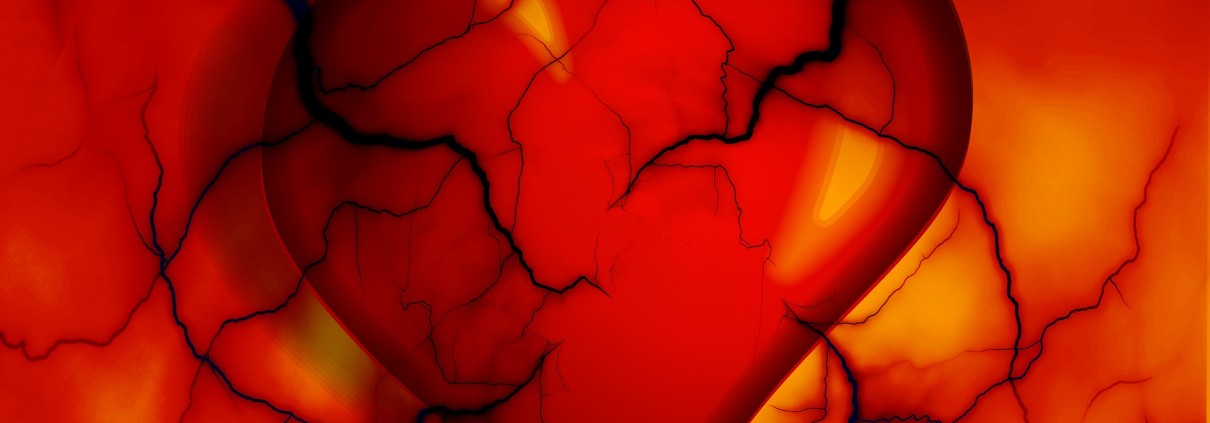Vascular Neurocognitive Disorder: Vascular Dementia
In this article we’re going to talk about Vascular Dementia. With this type of dementia, oxygen and blood flow that provides the necessary nourishment of the nerve cells and brain are disrupted. There are three major reasons this can happen; bleeding, blockage, or limiting the flow of blood.
In these instances, the brain cells not getting nourishment die, unless other blood vessels nearby take over the task. The specific symptoms the person will show, will depend on what structures or parts of the brain are being injured with the change of blood flow. With some of these events, the person may show an show an improvement after a few days, but the person typically does not make a full recovery. Below we’ll discuss more about each reason.
Bleeding
One cause is an event that leads to bleeding is when the blood vessel ruptures and blood pours out. The nerve cells become damaged by the pressure from the blood and they die because they are not getting nourishment. This can be either slow, which is difficult to notice, or rapid and can be noticed immediately.
Blockage
A second cause is when there is a blockage in the blood vessel. In this case, the blood vessel is clogged and the oxygen and nourishment can’t get through, leaving the blocked nerve cells, without nourishment and oxygen.
Limiting The Flow of Blood
The third common cause of the damage is from a partial blockage of blood vessels This typically involves the smallest vessels in the brain. Damage to these vessels is primarily due to buildup of plaque inside as well as inflammation and irritation possibly caused by high blood pressure, problems with sugar processing, or severe drops in blood pressure that result in very limited blood flow to the brain. In this situation there are short periods of time when flow is greatly limited or impaired, but not actually totally stopped. This causes the cells to lose nourishment and malfunction, but not always die. Therefore, symptoms may come and go and behavior & alertness may change significantly over short periods of time.
Information About Vascular Neurocognitive Disorder
Below is more information about vascular neurocognitive disorder:
- It is not the same as Alzheimers disease
- It has different causes and there are different types
- The risk of progression can be reduced
- It can look very different for different people
- Medical management will be different than for Alzheimer’s disease
Factors That Lead to Vascular Neurocognitive Disorder
Below are some possible factors that may lead to vascular neurocognitive disorder:
- Heart attacks
- Hyperthermia (heat exposure)
- Hypothermia (cold exposure), partial drowning
- Low sugar or High sugar episodes (hypoglycemia or diabetic episode)
- TIAs (‘mini-stroke’)
- Other times in which the blood supply to the brain is cut off or reduced
Causes of Vascular Neurocognitive Disorder
Below are some possible causes of vascular neurocognitive disorder:
- Strokes
- Hypertension that is not controlled
- Heart disease
- Diabetes
- Peripheral vascular disease
- Smoking
- Genetic tendencies in the family
Loss of blood flow to the brain can cause vascular neurocognitive disorder. This can happen s a result of:
- Heart Attack
- Head injury
- Blood pressure dropping too low for a length of time
Reducing Risk of Vascular Neurocognitive Disorder
There are many things that can reduce your risk of developing it and making a difference in progression. Below we’ve listed a few:
- Early detection
- Diagnosis
- Careful monitoring and treatment are critical for making a difference in progression.
How Common Is Vascular Neurocognitive Disorder?
- Depending on the source of information, it is either the second most common or the third most common neurocognitive disorder
- It is more common in areas where the rate of cardiovascular, or heart and blood vessel disease and adult onset diabetes are higher.
- Men are at a higher risk of developing this than women.
- Age is a risk factor.
- Some forms hit early 30-40 year olds, others hit later 50-80 year olds
Struggles With Vascular Neurocognitive Disorder
There are many struggles that people have with vascular neurocognitive disorder may encounter. We’ve broken these down into three categories.
Thinking
- Mild loss of ‘thinking or judgment skills’ compared to educational level and past performance
- Memory problems tend to include both difficulties with forming new memories (learning new things) but also remembering older events correctly ( different than with Alzheimer’s disease
- Disorientation to current situation – not able to appreciate the difficulties they are having
- Difficulty speaking, finding words, and comprehension
Emotional
- Change in typical personality and behaviors
- Apathy (not wanting to do anything), inability to ‘get going’, sitting around all the time, more sleeping or resting, less activity, more refusals to ‘do anything’
- Severe depression may set in – it may look sad or angry – may include changes in eating, sleeping, self-care, enjoyment, mood, and talk of ‘ending it all’
- Mood swings (rapid changes in mood and feelings without a clear cause)
- Delusional thinking (has fantasies about what others are doing or thinking – these things are not true)
Movement or Performance
- Difficulty using hands and tools to do familiar tasks
- Difficulty with balance and coordination in walking
- Inability to move or weakness in arms or legs
- Getting lost and confused, sometimes even in familiar settings
- Difficulty keeping track of time – mis-remembering appointments and mis-judging how long something takes
- Difficulty swallowing safely
- Slowed movement or performance on typical activities
- Reflexes may be very strong and may interfere with normal function
- Urinary incontinence may occur early and fairly suddenly
We hope that this article on Vascular Neurocognitive Disorder (Vascular Dementia) was helpful. Please feel free to Contact Us if you have any questions.



